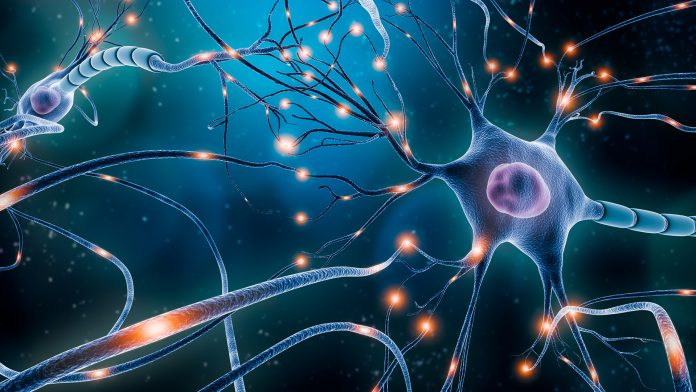
Researchers from the University of Basel have identified new biomarkers that can prevent nervous system damage after exposure to COVID-19.
Coronavirus does not infect nerve cells, but it can cause nervous system damage. The researchers have identified possible routes to preventing this nervous system damage whilst investigating the mechanisms responsible for this effect, which is known as ‘neuro-Covid’.
People losing their sense of taste and smell is a common symptom of COVID-19 infection. In some people, the virus can have a more serious impact on the nervous system, with effects ranging from lasting concentration problems to strokes.
The research team, led by Professor Gregor Hutter from the Department of Biomedicine at the University of Basel and University Hospital of Basel, have reported new findings on the development of “neuro-Covid” in the journal Nature Communications.
Detecting cases of neuro-Covid
The team focussed specifically on investigating how different severities of neuro-COVID can be detected and predicted. They did this by analysing the cerebrospinal fluid and blood plasma of individuals who had suffered from nervous system damage after COVID-19 infection. Their findings also offer some indications of how to prevent nervous system damage.
In the patients with the most serious neurological symptoms, the researchers identified a link with an excessive immune response after infection.
The affected individuals did show indications of impairment of the blood-brain barrier, this led the researchers to speculate if these impairments were triggered by a “cytokine storm” – a large release of pro-inflammatory factors in response to the virus.
However, the researchers also found antibodies that targeted parts of the body’s own cells, which is a sign of an autoimmune reaction in response to excessive immune response.
“We suspect that these antibodies cross the porous blood-brain barrier into the brain, where they cause damage,” explained Hutter. The team also identified excessive activation of microglia, the immune cells specifically responsible for the brain.
Next, the researchers investigated whether the severity of nervous system damage is also perceptible in brain structures. They found that patients with serious neuro-Covid symptoms had a lower brain volume than healthy participants. The team observed that the olfactory cortex, which is the area of the brain responsible for smell was particularly affected.
Blood tests can prevent nervous system damage
“We were able to link the signature of certain molecules in the blood and cerebrospinal fluid to an overwhelming immune response in the brain and reduced brain volume in certain areas, as well as neurological symptoms,” said Hutter. Hutter stressed the importance of examining these biomarkers in a greater number of participants.
The researchers are now aiming to develop a blood test that can predict serious cases of nervous system damage, including neuro-Covid and long COVID-19.
These findings open the potential for new drugs aimed at preventing neurological damage after COVID-19 infection. Factor MCP-3, one of the newly identified biomarkers, plays a key role in the excessive immune response, Hutter believes there is the potential to inhibit this factor medicinally.
“In our study, we show how coronavirus can affect the brain. The virus triggers such a strong inflammatory response in the body that it spills over to the central nervous system. This can disrupt the cellular integrity of the brain,” explained Hutter.










